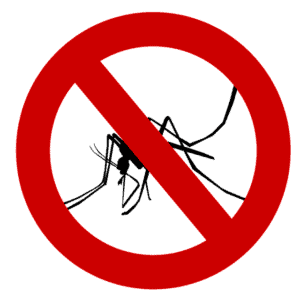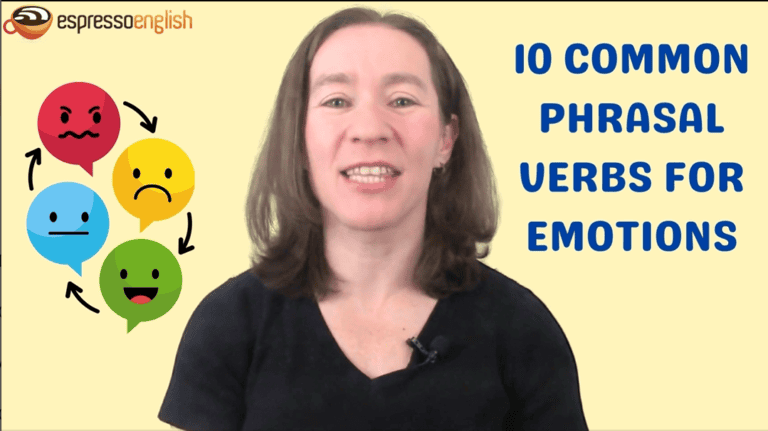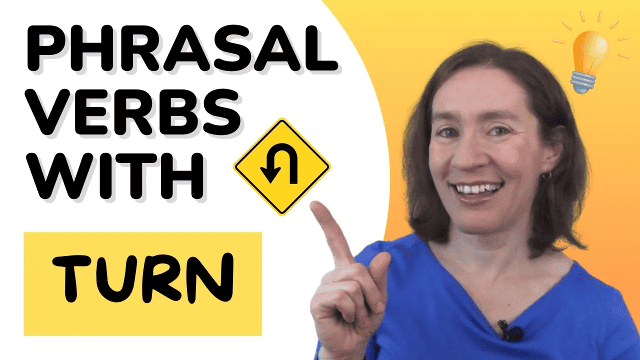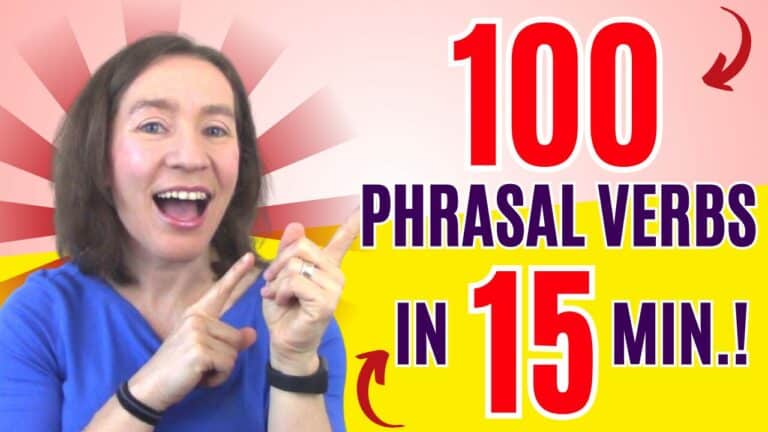
Phrasal verbs are combinations of a verb + preposition, like get up and find out. Phrasal verbs often have specific meanings that may not be obvious from the words themselves. In today’s lesson, I’ll explain four phrasal verbs that students have asked me about recently.
HOOK UP
Hook up has a few different meanings – it can mean “to connect,” especially when we are talking about connecting machines with wires or cables: “He hooked up the printer and the computer.”
To hook up with someone means to have a casual sexual relationship with the person, for example: “Last night she hooked up with a guy she met at the bar.”
Some people use hook up with someone to mean “meet/encounter” someone in a non-sexual way. However, because of the sexual meaning, I recommend using “meet up with” instead for these situations: “I’m gonna meet up with my friend after the baseball game.”
Finally, hook (someone) up is an informal way to describe giving someone a product or service, usually when you can get a special price or special access to it, as a favor to that person.
For example, let’s say your friend Diana works in a bicycle shop, and she gets an employee discount of 20%. If you want to buy a new bike, Diana might say, “I can hook you up” – meaning, “I can connect you with access to a special deal” – and then use her employee discount to get you a reduced price on the bike.

PLUG AWAY
If you have a very big task or project and you are plugging away at it, that means you are working hard and persistently on the project. We only talk about plugging away at large projects, not at small things that are easy to complete.
If you are trying to write a book – that’s a big, long-term project – and you are writing 5 pages per day, you could say you are plugging away at your novel, because you are putting in persistent effort.
WARD OFF
A student read an article that said that meditation can help ward off stress. What does this phrasal verb mean? Ward off means to prevent something from happening, or take a precaution to avoid it. If you spend time meditating, that can help prevent or avoid stress.
A few more examples: vaccines can ward off diseases, bug spray can ward off mosquitoes, and some people believe that certain rituals or objects can ward off evil or bad luck.

WHIP UP
Whip up is an informal way to say “prepare/create something quickly.” If you’re having people over for dinner, and you realize in the late afternoon that you haven’t planned a dessert, you might whip up a batch of chocolate chip cookies.
Another example is, “I only had a short lunch break, so I whipped up a sandwich.” We often use whip up for preparing food quickly, but it can be used for preparing other things quickly as well. Let’s say your co-worker is supposed to present some results at a meeting tomorrow morning, but he’s sick and he asks you to do it in his place. You would have to whip up a presentation – prepare it very quickly.
There’s another meaning for whip up. If you see whip up + an agitated emotion, like whip up enthusiasm, anger, hysteria, or a frenzy, then in that case whip up means to intentionally encourage and strengthen that emotion.
For example, a cool video about an upcoming new product might whip up enthusiasm about that product. A politician might use strong words to whip up anger about a particular political issue.










